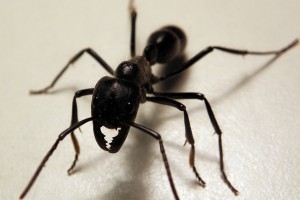The Cuckoo Underworld
Most birds make nests, and spend their time foraging to feed and care for their chicks. Cuckoos, on the other hand, don’t waste their time with any of that, they simply lay their eggs in another bird’s nest and let them do all the heavy lifting. This might sound like the easy option, but in fact cuckoos have made a whole lot more work for themselves trying to evade and deceive their neighbours. When cuckoos succeed in their trickery, their unsuspecting host suffers, producing fewer young that year and wasting time and energy. So, evolution has pitted host birds against cuckoos, with each side developing increasingly sophisticated techniques to try and get their own way. Host birds mob potential attackers, while cuckoos use mimicry to avoid detection, and threaten defectors with serious consequences.
Cuckoos are famous for taking advantage of their unsuspecting neighbours; laying eggs in their nest and leaving their unwitting host to raise the chicks. The world cuckold, used to refer to the husband of an adulterous wife, originates from the cuckoo bird. There are over 50 species of parasitic cuckoo in the family Cuculidae; some are generalists who will lay their eggs in any available nest, others specialise in one or a few ‘host’ species, but all are engaged in an evolutionary battle with the species they parasitise – an arms race, if you will. Species parasitised by cuckoos are at a disadvantage – in the best case they are merely wasting resources raising an unrelated chick, in the worst case the chick will hatch early and push out the other eggs in the nest, meaning that the unlucky bird in question loses an entire clutch. In each generation, therefore, natural selection will favour host birds that are able to avoid parasitism. The birds might evolve to be more discerning, for example, identifying the appearance of cuckoo eggs and removing them, or selecting nest sites that are more difficult for the cuckoos to access. Equally, in each generation the cuckoos that are most successful in deceiving and parasitising their neighbours will produce more offspring and their traits will be favoured by natural selection. Cuckoos might evolve eggs that more closely resemble those of their host, or very rapid egg incubation to ensure their chick hatches first. Ultimately, neither species wins, with evolution demanding increasingly sophisticated tactics for successful parasitism in cuckoos, and traits to thwart parasitism in the host species.

